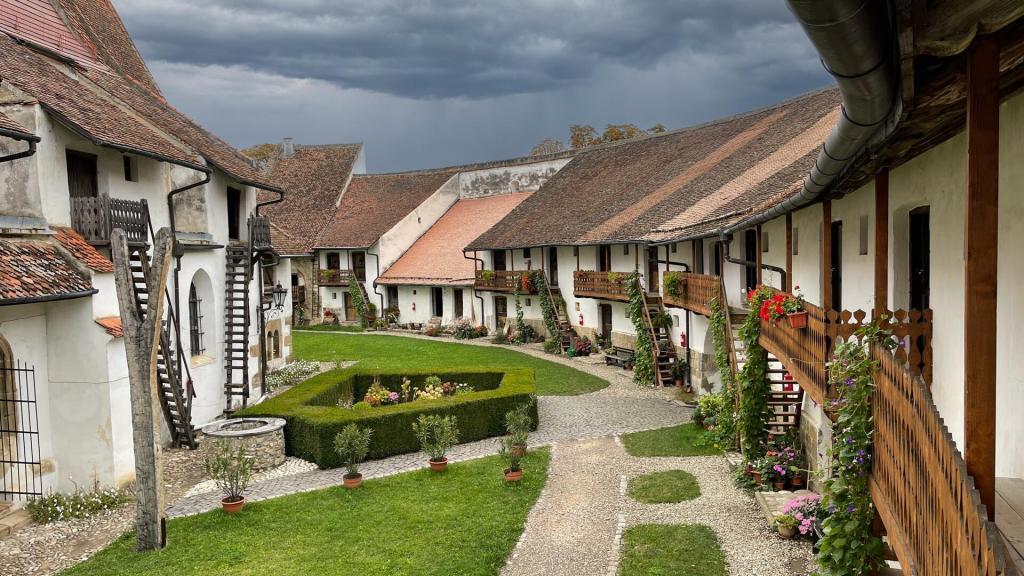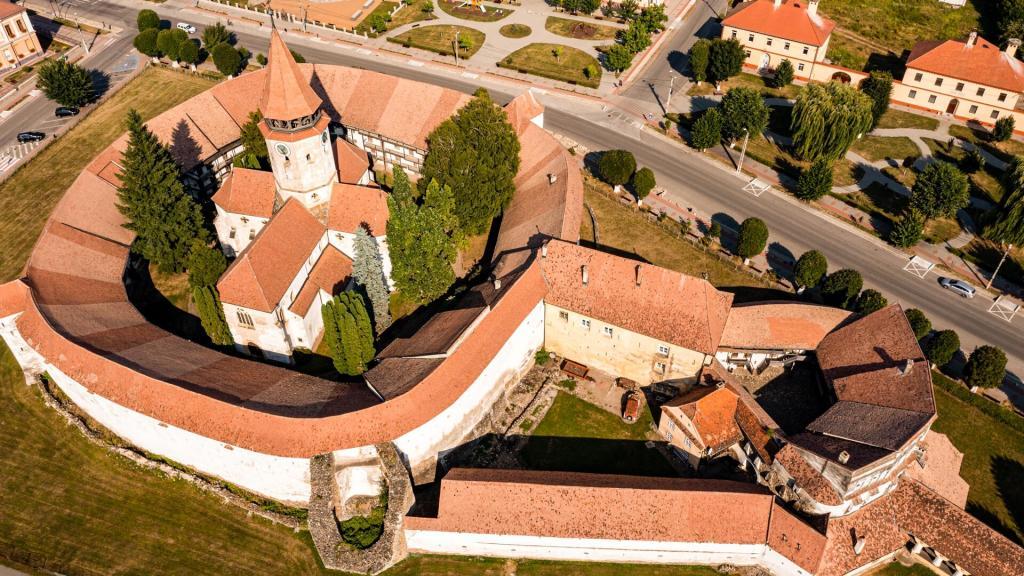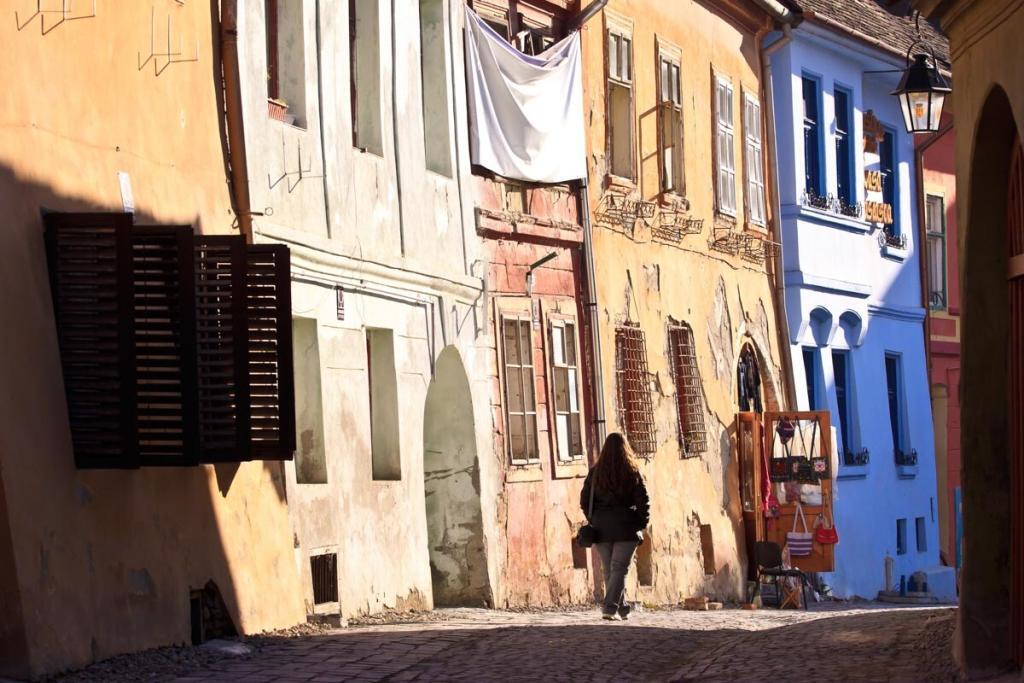Next day, on the agenda, was a stop in Rosia-Rothberg to visit Eginald Schlattner. I didn’t know what to expect and I was a little uncomfortable with Laura’s plan. He is an 88 years old Lutheran pastor, a well known writer with several novels written in German and numerous literary prizes and decorations both in Germany and in Romania. His personal history is as horrible as it can get in the times of communist Romania. Born in 1933 in Arad, he was very young when the Communists came to power in 1945. He was arrested in 1957 for political reasons, tortured and beaten for 20 months till they managed to extract a confession which indicted several German language writers. He, his brother (and the writers) were thrown in prison, their possessions confiscated. He was freed two years later and was offered the possibility to emigrate to Germany. And here his personal redemption began. He refused to leave – the voice of God told him not to leave, as he remembered later. He started working menial jobs, graduated from the University, got married, had a daughter.
Historical information
The communists took power immediately after the Red Army occupied Romania, in 1945. In 1947, they forced the king Michael to abdicate and proceeded to destroy Romania’s intelectual elite, by putting anybody who could oppose them in prison. More than 70000 people, among them former prime ministers, members of goverment and parliament, university profesors, philosophers, writers, actors, priests were beaten, tortured and starved and were killed in communist prisons or in forced labor camps. These horrors are documented in terrifiant details in the Memorial of Communist Victims and of Resistance in Sighet, Maramures – which is a must see if you want to understand the real impact of communism.
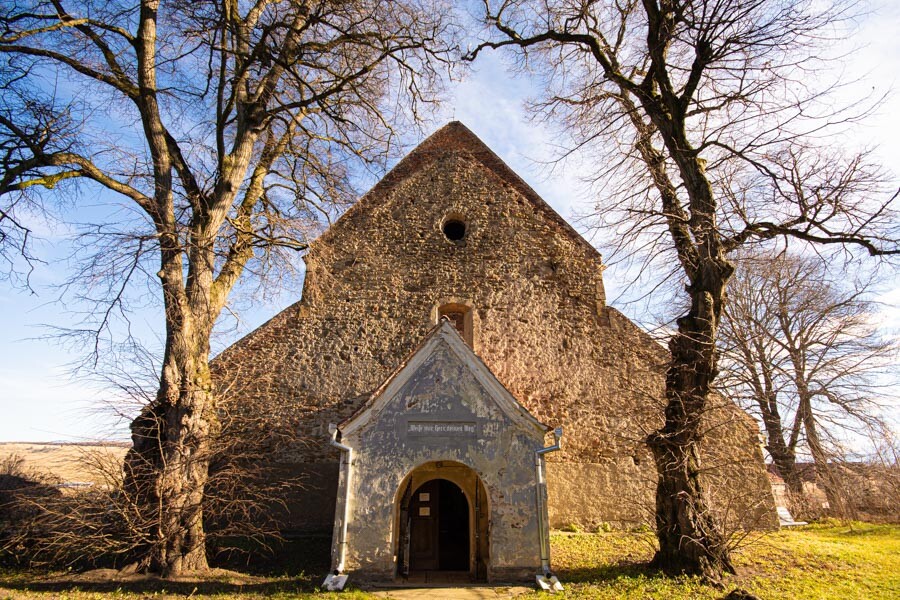
In 1978 graduated from the Theological Institute and became a pastor. He moved to Rosia and became the 99th pastor of the old church, built in 1225, older than Berlin itself, as he very proudly tells you, preaching to an increasingly empty church – all German speaking locals left Romania for Germany. At one point there was nobody else left but him and his wife. For 14 years he preached to an empty church. Right now, in the whole Rosia village, with its 800 years old church, where 99 pastors – of which 54 lutheran – preached, there is only him and a 90 years old lady left from the original German population. “I’m the last one. There is nobody else after me” he said.
Frankly, given this harsh history, I expected a grumpy old man and an awkward and sad encounter but instead he was just amazingly fresh, friendly and congenial. He insisted we attend his Sunday 12 am service and we did, together with several other visitors of his, old and young, German and not so German – there was even a tourist from Southern India who wanted to see him. He read the Bible in German, like the other 98 pastors before him, but the sermon was in Romanian and he adapted it so that he does not bore our kids to tears. Alex (my son) was really captivated.
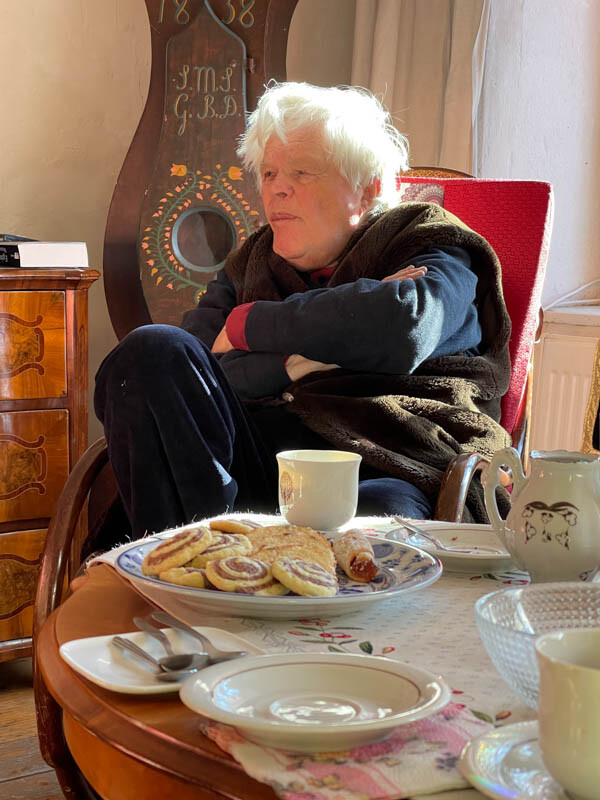
After the sermon, he invited us to his 500 years old house – he was very proud of the old history around him – and we were offered cookies and coffee. He invited our kids to chase his ducks (“they are only for decor and for kids to chase”), to explore the hundreds years old cellars (“there is a secret entrance you need to discover”). We discussed his health – he broke his leg 2 years ago and was immobilised but he is better now, able to walk with his crane; about his books, about the house – he took me to a place on the balcony where one can see the old (500 years) house and the new (300 years) house being joined together – he joked about the catholic priests (before Luther) as not having wives and needing smaller houses – hence the “new” house extension for the lutheran priests and their wifes. We talked about the chances that the Saxons will return to their old houses but he was skeptical. They have their life there in Germany and it takes more than the “summer Saxons” (the ones that return only on holiday to visit their ancestor’s villages) to repopulate and rebuild the communities. We talked about ecumenism and the fact that nobody holds the whole truth – “I do not swear on Luther”, he said. Catholics, orthodox, protestants (and I would add, muslims and jews) know only a part of God’s truth – which is by definition, unknowable. The Bible has contradictions the Holy Fathers tried to reconcile in vain. One has to be tolerant because one does not know everything. He does not feel that this spirit – which was part of the area – is still present. He told us that he feels lonely sometimes – the previous years before the pandemic, there were hundreds of people visiting him, now hardly anybody, but he keeps busy with his books – another book was in print as we spoke and a very nice lady, German language professor at Cluj University, was there to discuss about yet another book.
When we left, he signed our “The beheaded rooster” copy (with a cryptic reference about 53 angels we need to decypher) and he insisted on accompanying us on our way out (“to be sure we are indeed leaving”, he joked), hugged the kids and allowed us to take pictures with him. What a treasure!

